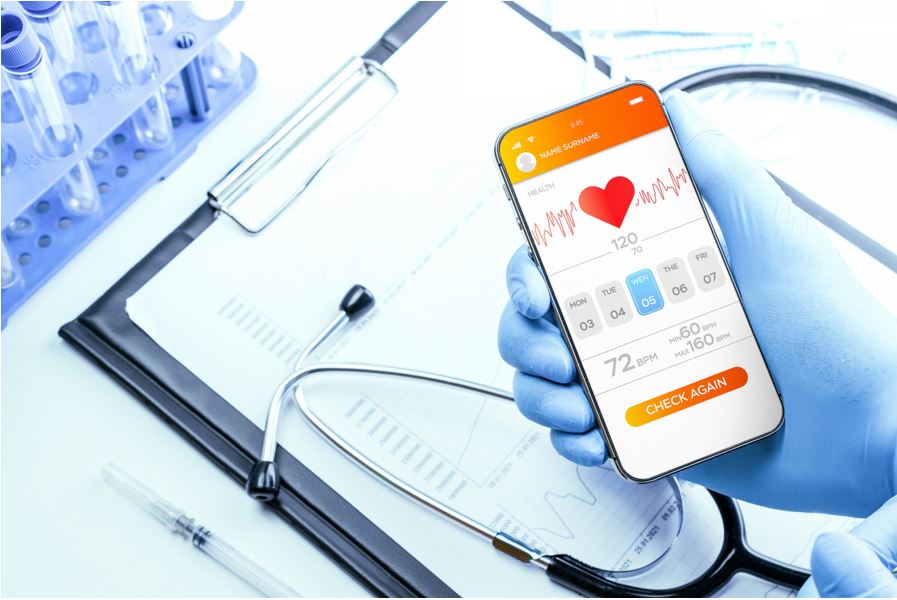Track Your Way To Better Health With New Healthcare Apps
Digital health has the potential to enhance healthcare by enabling patients to take greater control of their health, improving access to care, and supporting the collection and analysis of health data for better decision-making. It can also help healthcare providers to provide more personalized and efficient care, reduce costs, and improve patient outcomes.
Digital health refers to the use of digital technologies and tools, such as mobile devices, wearables, software applications, and telehealth, to improve health and healthcare delivery. It encompasses a wide range of technologies and services, including electronic health records (EHRs), remote monitoring devices, health information exchange (HIE) systems, and mobile health (mHealth) apps, among others.
The rise of healthcare applications on mobile devices has been a game-changer for people seeking to manage their health and wellness. With the ubiquity of smartphones, mobile health (mHealth) apps have become a popular way for millennials to monitor their physical and mental health, stay informed about their bodies, and take proactive measures to improve their well-being. In this article, we’ll explore some of the most popular healthcare apps for mobile devices, focusing on menstrual cycle tracking apps, and how they’re empowering millennials to be more in control of their health.
-
Fitness Tracking Apps
Fitness tracking apps are designed to help people monitor their physical activity and exercise routines. These apps track metrics such as steps taken, distance traveled, and calories burned. They also allow users to set fitness goals and track their progress over time. Popular fitness tracking apps include Fitbit, MyFitnessPal, and Nike Training Club.
-
Meditation and Mindfulness Apps
Meditation and mindfulness apps are designed to help people reduce stress and anxiety, improve focus and concentration, and promote overall well-being. These apps offer guided meditations, breathing exercises, and other mindfulness techniques. Popular meditation and mindfulness apps include Headspace, Calm, and Insight Timer.
-
Telehealth Apps
Telehealth apps allow users to consult with healthcare providers remotely, using video conferencing, phone calls, or messaging. These apps are particularly useful for people who have difficulty accessing healthcare due to geographic location, transportation issues, or other barriers. Popular telehealth apps include Teladoc, Amwell, and Doctor on Demand.
-
Medication Management Apps
Medication management apps are designed to help people keep track of their medications, dosages, and schedules. These apps can remind users to take their medications on time, track medication usage and refill dates, and provide information on potential side effects and drug interactions. Popular medication management apps include Medisafe, MyTherapy, and CareZone.
-
Menstrual Cycle Tracking Apps
Menstrual cycle tracking apps are among the most popular healthcare apps for women of reproductive age. These apps allow women to track their menstrual cycle, predict ovulation, and monitor symptoms such as cramps, mood changes, and bloating. Some of the most popular menstrual cycle-tracking apps include Clue, Flo, and Period Tracker.
Benefits Of Healthcare Applications
- Convenience: Mobile healthcare apps make it easy for millennials to access health information, track their progress, and communicate with healthcare providers from the convenience of their smartphones.
- Personalization: These apps allow millennials to track their own health data, set goals, and receive personalized feedback and recommendations based on their individual health needs and preferences.
- Increased Awareness: By tracking their symptoms and health metrics, millennials are more aware of their physical and mental health status, which can help them identify potential health issues and take preventative measures.
- Better Health Outcomes: Regular use of healthcare apps can lead to better health outcomes by encouraging healthy behaviors and helping millennials stay on track with their health goals.
- Empowerment: By providing access to health information and tools, mobile healthcare apps empower millennials to take charge of their health and make informed decisions about their well-being.

CONTACT US TODAY to learn more about how our weekly digital marketing newsletter can help your business succeed.
You Can Also Get To Us Through Our Email Address
Follow us on our social media platforms:



